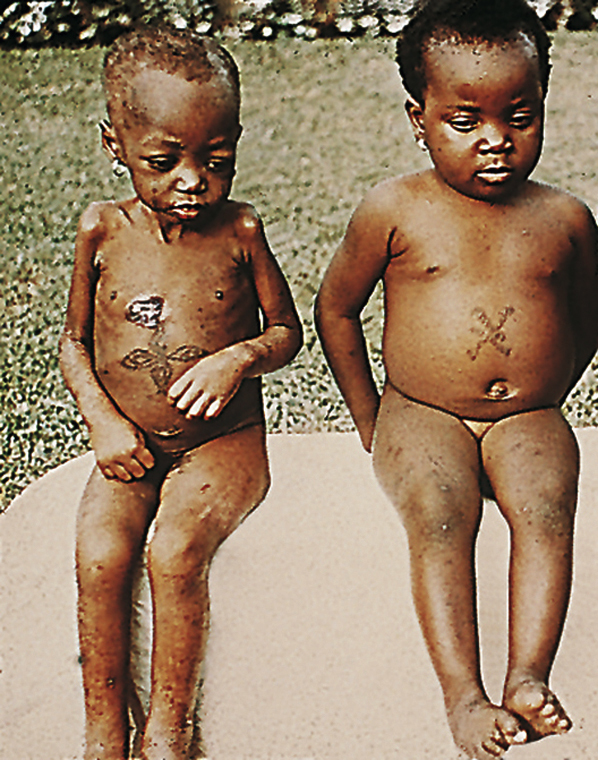kwashiorkor /kwä′shē·ôr″kôr/ [Afr] , a malnutrition disease, primarily of children, caused by severe protein deficiency that usually occurs when the child is weaned from the breast. The child does not lose weight as dramatically and does not look as sick as a marasmic child, who lacks both protein and calories. Some now believe kwashiorkor may relate to bacterial grain contamination and occur when the newly weaned child begins to ingest grain products. Eventually the following symptoms occur: delayed growth, changes in skin and hair pigmentation, diarrhea, loss of appetite, nervous irritability, lethargy, edema, anemia, fatty degeneration of the liver, necrosis, dermatoses, and fibrosis, often accompanied by infection and multivitamin deficiencies. Because dietary fats are poorly tolerated in kwashiorkor, its treatment includes a skimmed milk formula in initial feedings, followed by additional foods until a full, well-balanced diet is achieved. See also marasmic kwashiorkor, marasmus, protein-energy malnutrition.

